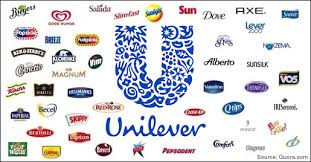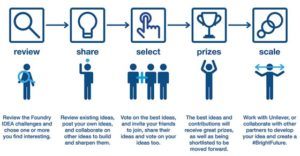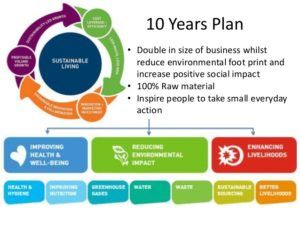Unilever – Crowdsourcing Sustainability

Can Unilever effectively utilize its consumers to reach its lofty sustainability goals?
Unilever is one of the world’s leading consumer packaged goods companies. The company produces everything from food products to personal car to home-care goods, operates in over 180 countries and totaled €52.7 billion in revenue for 2016. However, Unilever differs from some of its CPG competitors in its commitment to sustainability. In 2010, the company launched its “Sustainable Living Plan” – setting company wide goals for improving the health and well-being of consumers, reducing environmental impact and, perhaps most ambitiously, sourcing 100% of agricultural raw materials sustainably by 2020 [1].
Prior to this sustainability launch, the company was already experimenting with crowdsourcing through the Unilever Foundry – a platform for start-ups and innovators to engage, collaborate and explore business ideas with Unilever and its 400+ brands. By using a pitch-pilot-partner approach similar to Tongal’s model, the company is able to substantially reduce the time it takes to get a new initiative to market, averaging just nine months from brief to pilot.

With the sustainability commitment looming, Unilever Foundry launched a global crowdsourcing community in 2015 – Foundry IDEAS – to enable peer-to-peer collaboration and bring together consumers and innovators to co-create solutions to sustainability challenges [2]. ‘Grand challenges’ will be regularly uploaded to the platform and members are encouraged to submit ideas, collaborate openly and up-vote interesting solutions [3]. For example, the initial three ‘grand challenges’ at launch were:
- How can we help 100 million people have access to basic toilet sanitation by 2020?
- Invent the shower of the future, to be more luxurious and more sustainable.
- How can we enable millions of mothers and daughters in Africa to embrace nutritious cooking?
Why Participate?
The best ideas in response to the company’s ‘grand challenges’ will be piloted or implemented, a reward that Unilever believes will act as a generous incentive for participation [4]. I would agree with this sentiment – if people’s passion for deodorant was enough to elicit responses and even free manpower (as seen in Nivea), surely sustainability is a cause that will evoke action. People with ideas but not the capital or community to support their implementation will be bolstered to have a platform to collaborate and an opportunity to see their plans put into action at scale. I believe that support from a company as global and influential as Unilever on an initiative as important as sustainability will lead to an active community.
Value Creation and Value Capture
For Unilever, the value creation is interesting, as the main purpose of its crowdsourcing is to better enable the company to hit its sustainability goals in 2020. Therefore, value creation from crowdsourcing is inherently linked to the value creation / capture for the company from the “Sustainable Living Plan”. The direct business link is unclear – it has not been shown that consumers will either pay more for sustainable products or that this initiative will substantially increase their market share (to offset increased costs) [1]. However, there are potentially indirect value creation mechanisms at play including boosting employee morale and retention, increasing competitor’s costs of doing business, publicizing their accomplishments to increase positive press (and therefore spark consumption) or hoping that consumers will demand more from companies in the near future. The ‘grand challenges’ listed above are not directly connected to Unilever’s product portfolio, insinuating a strong commitment to sustainability despite its tenuous connection to profits or a powerful belief in the indirect effects discussed. Either way, crowdsourcing is clearly a powerful tool to help accomplish the sustainability initiatives, even if it is less clear the ultimate impact that this plan will have on the bottom line.
Finally, as in most crowdsourcing models, Unilever owns the ultimate intellectual property. I think this intuitively makes sense – it is one thing to have a nascent idea to solve these ‘grand challenges’ and another to successfully implement global change. Yet, if the main goal is to improve the company’s sustainability, this is an important value capture lever to pull. Overall, crowdsourcing enables Unilever to think more creatively – by engaging its community on idea generation – in order to increase the likelihood of reaching its sustainability goals and focus its capital on executing.
[1] Henderson, Rebecca and Nellemann, Frederick. Sustainable Tea at Unilever. Boston: Harvard Business School Publishing. 2011. Print
[2] https://foundry.unilever.com/unilever-foundry-launches-global-crowdsourcing-community-foundry-ideas
[4] http://www.thedrum.com/news/2015/06/26/unilever-crowdsource-sustainability-innovations-consumers




Thank you for sharing this interesting post! I agree that UL is staying far ahead of the game by utilizing this crowdsourcing platform while other CPG companies have not fully realized the value of this interaction. I am curious why UL would only take consumer ideas and ask some agency to execute this project? A skeptical consumer like me may think that it’s just a CSR/PR campaign vs if they not only took ideas but also awarded funding for people to make a difference in these communities – could it be a more powerful campaign that way?